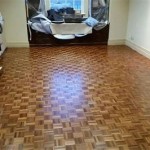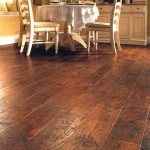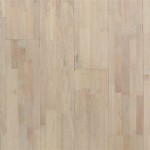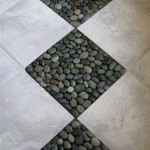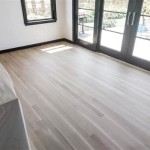Making The Right Choice: Tile Vs. Wood Flooring
When renovating your home, choosing the right flooring is crucial. Two popular options are tile and wood flooring, each with distinctive advantages and drawbacks. Understanding the essential aspects of each material will help you make an informed decision.
Durability and Maintenance
Tile flooring is renowned for its durability and low maintenance. Its impervious surface resists scratches, dents, and stains, making it ideal for high-traffic areas like kitchens and bathrooms. Cleaning is effortless, requiring only a damp mop and occasional deep cleaning with a tile cleaner.
Wood flooring, while elegant and timeless, requires more care. Scratches and dents are more common, and spills must be cleaned promptly to prevent staining. Regular sweeping and vacuuming are essential, and occasional refinishing may be necessary to maintain its pristine appearance.
Water Resistance
Tile flooring excels in water resistance, making it ideal for areas where moisture is a concern. Tiles are glazed, creating an impenetrable barrier that prevents water from penetrating and damaging the subfloor.
Wood flooring, on the other hand, is susceptible to water damage. It can swell and warp when exposed to moisture, leading to costly repairs. Therefore, it is not recommended for moisture-prone areas like bathrooms or basements.
Comfort and Warmth
Wood flooring provides a warm and comfortable underfoot feeling. The natural insulation properties of wood retain heat, making it a cozy choice for living rooms, bedrooms, and other living spaces.
Tile flooring, although cool and refreshing, can feel cold underfoot. However, radiant heating systems can be installed under tile flooring to counteract this issue.
Style and Customization
Both tile and wood flooring offer a wide array of styles and customization options. Tile comes in various sizes, shapes, colors, and patterns, allowing you to create unique and personalized designs.
Wood flooring is also versatile, offering different species, stains, and finishes. The natural grain patterns and textures add character and warmth to any space.
Installation and Cost
Tile flooring typically requires professional installation, which can be expensive. However, its durability and low maintenance costs can offset the initial investment.
Wood flooring can be installed as a floating floor or nailed down. Floating floors are easier to install and less expensive, while nailed-down floors provide greater stability and durability.
Conclusion
Ultimately, the best choice between tile and wood flooring depends on your individual needs and preferences. Consider factors such as durability, water resistance, comfort, style, and cost to make an informed decision. Both materials offer unique advantages, and understanding their respective qualities will help you create a beautiful and functional space in your home.

Tile Vs Wood Flooring Major Differences Pros Cons And Costs Forbes Home

Comparing Tile Vs Wood Flooring How To Make The Best Choice Alpha Floor Sanding

Wood Flooring Vs Vitrified Tiles Make The Right Choice

Tile Vs Wood Flooring Which Is The Better Choice Stone Center

Porcelain Wood Look Tile Vs Luxury Vinyl Plank An Honest Comparison

Hardwood Floors Vs Tile Making The Right Flooring Choice For Your Home Dusek Powell Custom Builders

Best Tile For Kitchen Floor How To Make The Right Choice

Tile Flooring Vs Laminate Compare Major Differences And Costs Forbes Home

Luxury Vinyl Tile Vs Hardwood Flooring

Wood Look Tile Why It Continues To Be A Trendsetter Empire Today Blog
See Also
